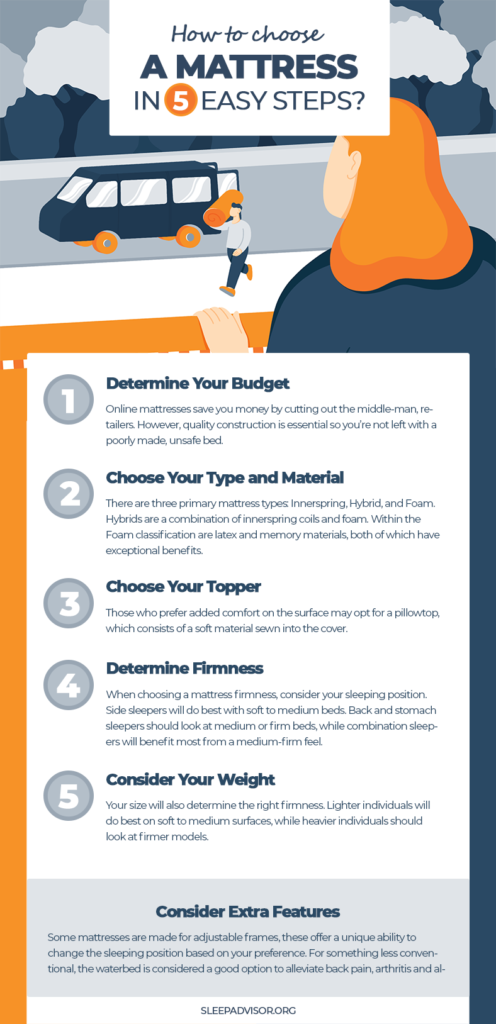If you’re asking yourself, “How do I know it’s time for a new mattress?”, you’re not alone. With so many different types of mattresses on the market, it can be hard to know when it’s time to replace your old mattress. In this article, we’ll discuss some of the signs that it’s time to invest in a new mattress and what to look for when shopping for one.
How to Tell When It’s Time for a New Mattress
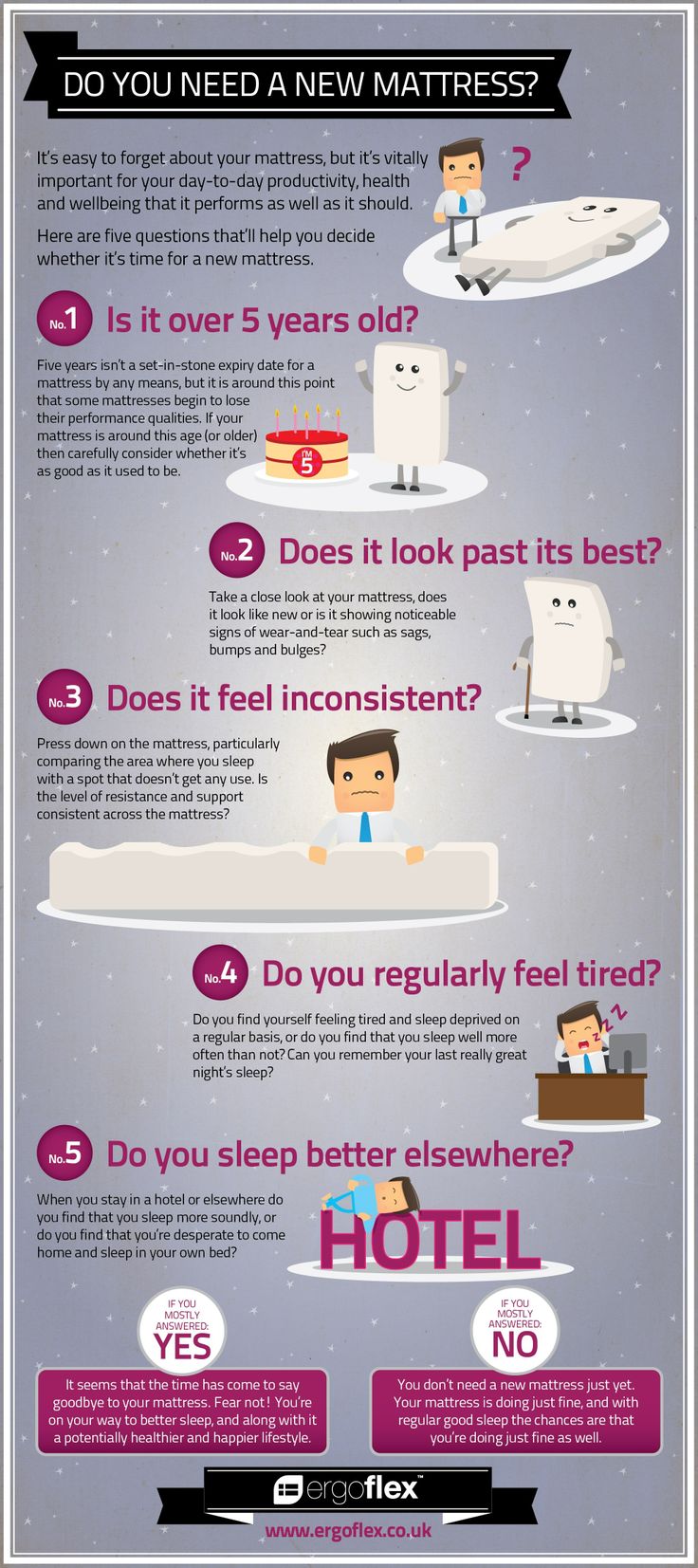
Age: The average mattress should be replaced every 8-10 years. If you can’t remember how old your mattress is, it’s likely time for a new one.
Support: A mattress should offer firm support while still being comfortable. If your mattress is sagging or has dips, it’s time to start looking for a new one.
Sleep Quality: You should wake up feeling refreshed and energized, not achy or sore. If you find yourself waking up in pain, your mattress may be to blame.
Allergies: Dust, dust mites and allergens can build up in your mattress over time. If you or a family member suffer from allergies, it may be time to invest in a new mattress.
Noise: If you hear creaks or squeaks when you move around in bed, it’s time for a new mattress.
Smell: If your mattress has a musty or unpleasant smell, it’s time to start shopping for a new one.
Cost: If you find yourself spending money on mattress toppers or pads to make your mattress more comfortable, it may be worth investing in a new mattress.
Guarantee: Many high-quality mattresses come with a 10-year guarantee. If your mattress is over 10 years old, it’s time to shop for a new one.
Finally, if you’re in the market for a new mattress, take the time to find one that’s comfortable and supportive. A good mattress can make all the difference when it comes to a good night’s sleep.
Consider the Age of Your Mattress

Your mattress is an important investment. It should be replaced after a certain amount of time, as it can become worn and damaged. If you’re unsure about when to replace your mattress, consider its age. Generally, mattresses should be replaced after 7-10 years. Over this period of time, its materials will break down and it will become less comfortable. It’s important to keep in mind that mattresses used by children and those used by adults may need to be replaced more frequently, due to the increased wear and tear. If you’re not sure how old your mattress is, you can look for the manufacturer’s label. It will usually have the date of manufacture and the expected lifespan. If you’ve had your mattress for longer than this, it may be time to purchase a new one.
Look for Signs of Wear and Tear

| Signs of Wear and Tear | Description |
|---|---|
| Torn or Stained Coverings | If the mattress cover is torn, stained, or otherwise damaged, it’s a sign that it’s time for a new mattress. |
| Sagging or Bowing | If the mattress is sagging or bowing in the middle, it’s no longer providing the support that it should. |
| Uneven Sleep Surface | If you find that you’re sleeping unevenly on the mattress, with one side sinking lower than the other, it’s a sign that the mattress has lost its shape. |
| Noise | If you hear creaking or squeaking noises when you move around on the mattress, it’s a sign that the internal components are wearing out. |
| Changes in Comfort Level | If you find that you’re no longer sleeping as comfortably as you used to, it may be time to replace the mattress. |
A mattress that is showing signs of wear and tear is no longer providing the support and comfort that it should. If you notice any of the following signs, it’s time to start shopping for a new mattress: torn or stained coverings, sagging or bowing in the middle, an uneven sleep surface, creaking or squeaking noises, or a noticeable change in comfort level.
Sagging or Lumps
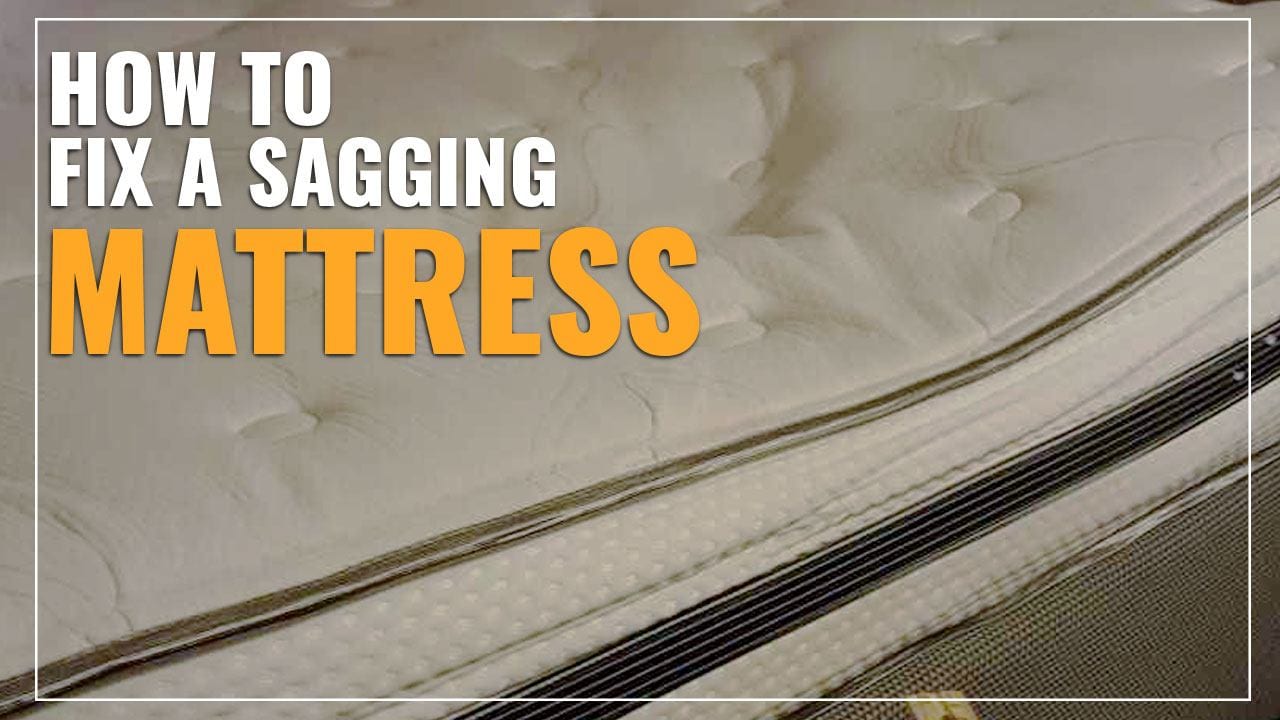
- Sagging occurs when the mattress does not have enough support, making it feel like it is sinking in the middle. It is a sign that the mattress is reaching the end of its life.
- Lumps are a common sign that the mattress is past its prime. These lumps are caused by the mattress’s support system wearing down over time, leaving uneven patches.
- Both sagging and lumps can lead to poor sleep quality and increased back pain due to the lack of support.
- Replacing your mattress as soon as these signs appear is the best way to ensure that you are getting the most out of your sleep.
Allergies or Respiratory Issues
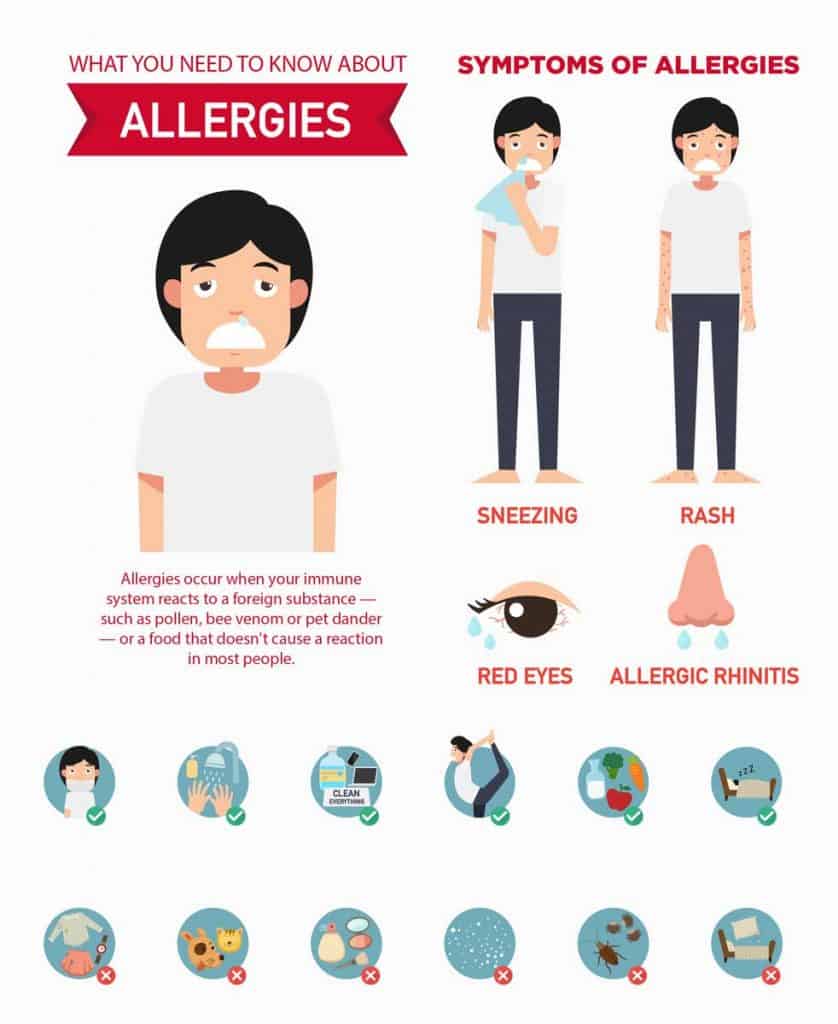
| Sign | Description |
|---|---|
| Coughing/wheezing | If you start having more coughing or wheezing while you’re asleep, it could be a sign that your mattress is filled with dust, dirt and other allergens. |
| Congestion | If you’re waking up with a stuffy nose, it could be a sign that your mattress is harboring dust mites or other allergens. |
| Skin rashes | If you start to notice rashes, hives or other skin irritations, it could be a sign that your mattress is harboring dust mites or other allergens. |
If you experience any of these signs, it may be time to replace your mattress in order to reduce your exposure to allergens and other irritants. A new mattress may provide better comfort and support, and help you breathe easier.
You Wake Up Feeling Stiff or Sore

If you find yourself waking up with body aches, it could be due to an old mattress. Over time, mattresses wear out and lose their ability to provide enough support. As a result, you might experience stiffness, aches and pains when you wake up. If you try to change your sleeping positions but still wake up feeling sore, it’s probably time to invest in a new mattress.
Your Sleep Quality Has Declined

Do You Wake Up Feeling Tired? If you wake up feeling unrested and groggy even after getting a full night’s sleep, it may be time to consider getting a new mattress. Poor sleep quality is often caused by an old and worn out mattress that can no longer support your body properly.
Do You Experience Aches and Pains? If you often wake up with back, neck, and shoulder pain, it could be an indication that your mattress is no longer providing the correct support and comfort. An old mattress can cause strain on certain pressure points, which can lead to chronic aches and pains.
Do You Have Trouble Falling Asleep? If you’re having trouble drifting off to sleep, or if you often wake up in the middle of the night, it could be a sign that your mattress is too soft or too hard. A mattress that’s too firm or too soft won’t give you the support you need for a comfortable night’s sleep.
Do You Sleep Better Elsewhere? If you find yourself sleeping better in a hotel or at a friend’s house than in your own bed, it may be time to invest in a new mattress.
| Signs It’s Time for a New Mattress |
|---|
| You wake up feeling tired |
| You experience aches and pains |
| You have trouble falling asleep |
| You sleep better elsewhere |
If you recognize any of these signs, it may be time to start looking for a new mattress. Investing in a quality mattress that is able to provide your body with the support and comfort it needs can be a great way to improve your sleep quality and get the restful night’s sleep you deserve.
You Find Yourself Rolling Toward the Middle

- If you find yourself rolling toward the middle of the bed while you’re sleeping, it’s a sign that your mattress is no longer supporting you properly and has lost its shape.
- When your mattress has lost its shape and no longer conforms to your body, it’s no longer providing the support your body needs to stay aligned during sleep.
- This can be a sign that your mattress is too old and is no longer providing the same level of comfort and support as it once did.
- A good rule of thumb is to replace your mattress every 8-10 years. If your mattress is older than that, it’s likely time for a new one.
- If you’re unsure of how old your mattress is, you can look for a serial number or production date on the mattress label.
You Hear Noises
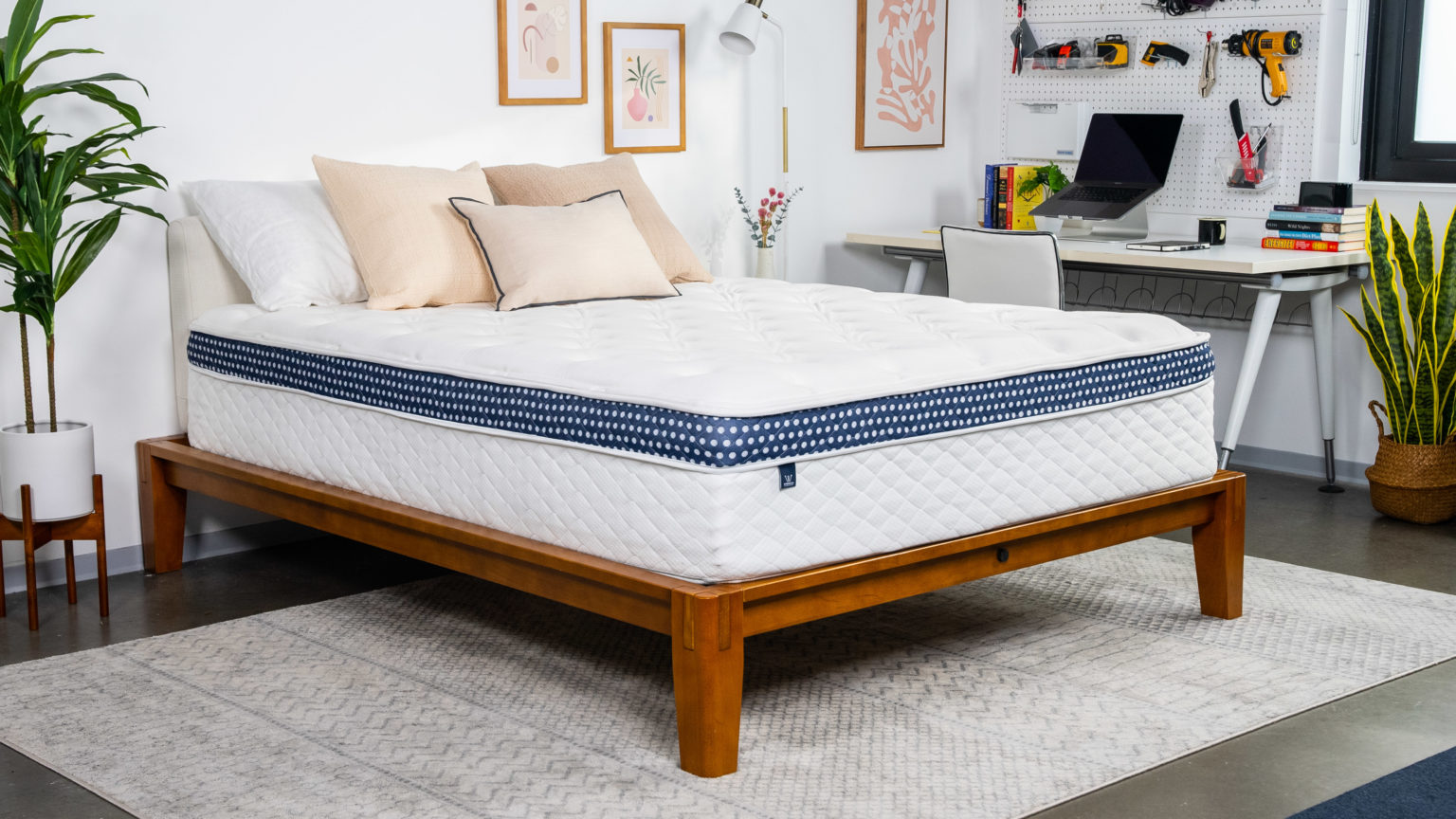
- Noises such as squeaks, groans, and creaks coming from your mattress could be a sign that it is time for a new one.
- These noises can be caused by the mattress losing its shape and structure over time.
- It can also be caused by springs being worn out, which isn’t something that can be repaired and means it’s time for a new mattress.
- If you are hearing noises from your mattress, it is highly recommended that you replace it as soon as possible.
If you’re wondering how do you know you need a new mattress, or how old is my mattress, then it’s important to pay attention to any signs that it is time for a new one. Make sure to observe any changes in comfort and support that you may be experiencing, and keep an ear out for any noises coming from your mattress. If you hear any noises, it’s probably time to go mattress shopping.
You Wake Up Hot
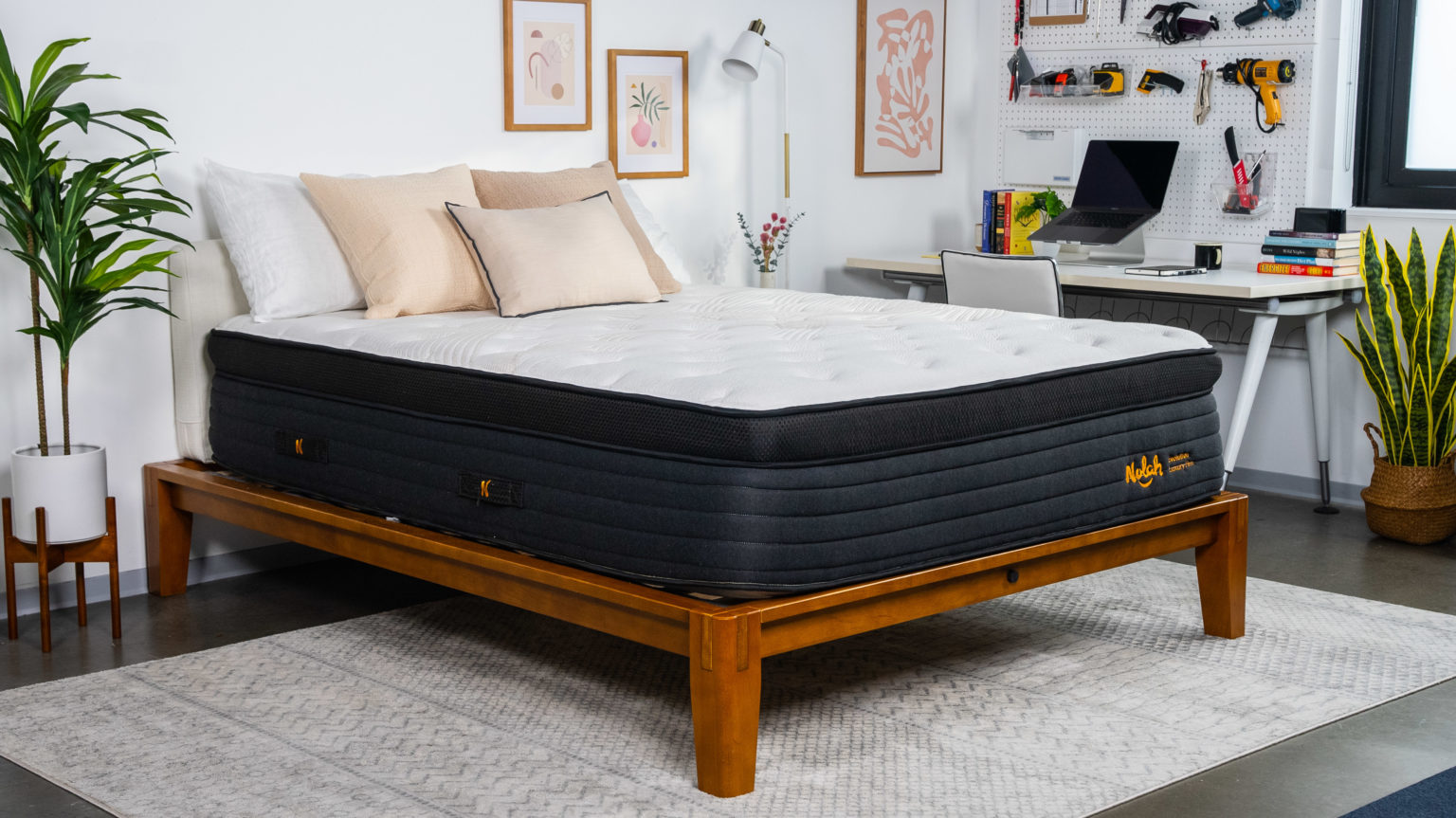
- Do you find yourself waking up during the night, feeling hot and sweaty?
- Do you wake up in the morning feeling wet and sticky?
- Do you feel like the mattress is trapping your body heat?
If you’re experiencing any of these problems, it’s a sign that your mattress may be too old and is not providing proper breathability. This is an indication that your mattress is not providing adequate air circulation and ventilation, and it’s time to consider replacing it.
A good mattress should be able to regulate body heat and keep you cool, no matter how hot the room is. If your mattress is not doing this, your body is not able to cool itself down, leading to hot and uncomfortable sleep. So, if you’re feeling hot and sweaty when you wake up, it’s time to think about how old your mattress is and if it’s time to invest in a new one.
Factors to Consider When Buying a New Mattress

When it comes to mattresses, there are a few key factors to consider before making a purchase. Here are the top factors to look for when deciding if you need a new mattress:
Age – The average mattress lifespan is around 8-10 years. If your mattress is older than that, it’s probably time to start shopping for a replacement.
Comfort – Your mattress should provide a comfortable night’s sleep. If it’s uncomfortable, lumpy, or you wake up with aches and pains, it’s time to start looking for a new one.
Durability – A good mattress should be able to withstand regular use without sagging or losing its shape. If your mattress is showing signs of wear and tear, it’s probably time to invest in a new one.
Materials – When shopping for a new mattress, look for one made from quality materials. Look for mattresses with high-density foams and coils, as these will provide better support and durability.
Price – Last but not least, consider your budget when shopping for a new mattress. Quality mattresses can be expensive, but they will last longer and provide better comfort and support.
By considering these factors, you can make sure you get the best mattress for your needs. When in doubt, it’s always a good idea to consult with a professional to help you make the best choice.
Type of Mattress
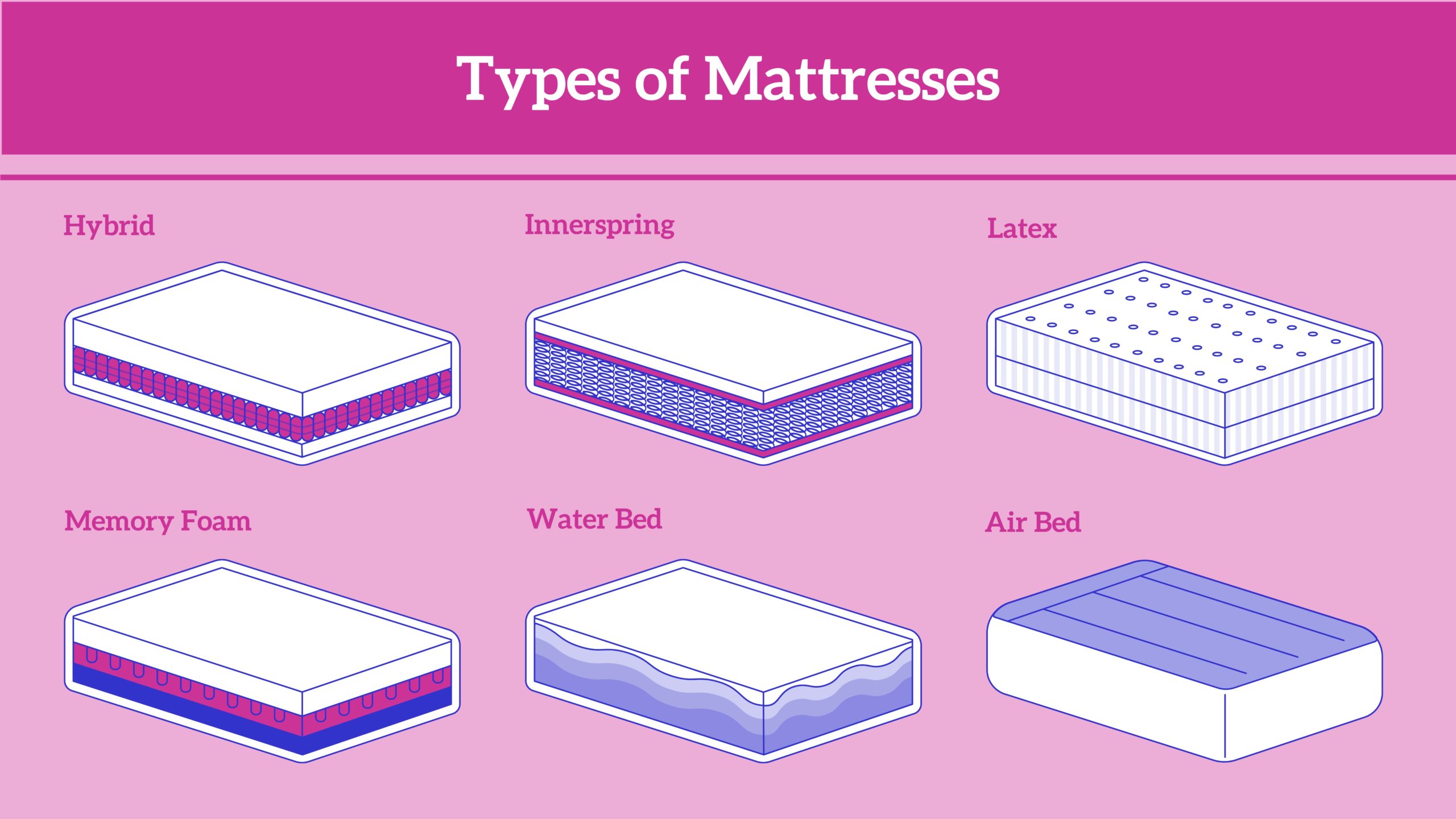
- Innerspring Mattress: This is a traditional mattress, with a support structure made of metal coils covered by foam and fabrics. Innerspring mattresses are usually firmer and more durable than other types of mattresses.
- Memory Foam Mattress: Memory foam mattresses are made of foam that conforms to the shape of your body, providing support and pressure relief. They usually have a longer lifespan than innerspring mattresses.
- Latex Mattress: Latex mattresses are made with latex foam, which is more durable than memory foam and generally more supportive. Like memory foam, they conform to your body and provide good pressure relief.
- Hybrid Mattress: Hybrid mattresses combine innerspring coils with memory foam or latex, providing the support of an innerspring mattress with the comfort of memory foam or latex. They typically have a longer lifespan than other mattress types.
- Air Mattress: Air mattresses are filled with air and adjustable, allowing you to customize the firmness. They are often used for camping and are not as durable as other types of mattresses.
- Waterbed Mattress: Waterbed mattresses are filled with water and adjustable, allowing you to customize the firmness. They are usually more durable than air mattresses, but less durable than other types of mattresses.
When deciding if it’s time to buy a new mattress, consider how old your mattress is and how much support it is providing. Memory foam and latex mattresses usually last longer than innerspring mattresses, while hybrid mattresses usually last the longest. Air and waterbed mattresses are usually the least durable. If you wake up with aches and pains, or if your mattress is more than 7 years old, it may be time for a new mattress.
Comfort Level
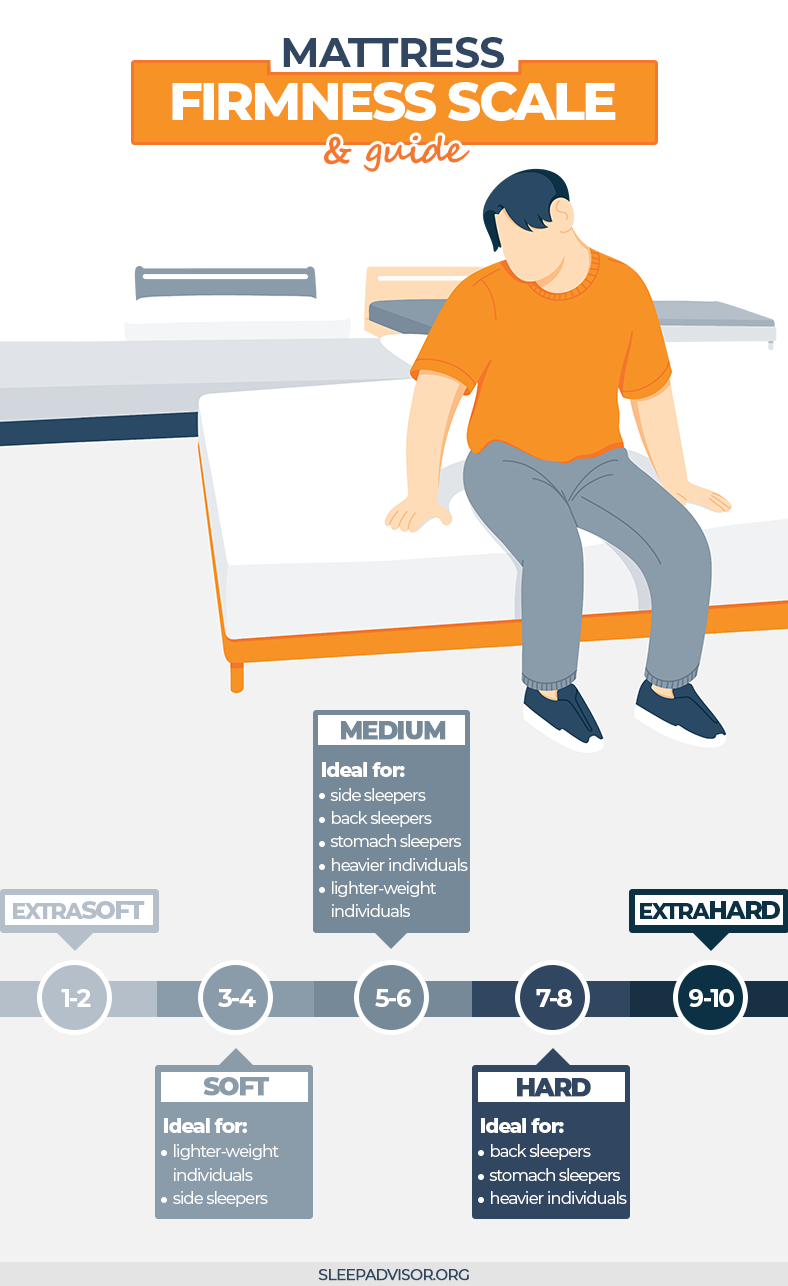
One of the most important factors to consider when deciding if it’s time for a new mattress is your comfort level.
- If you’re waking up tired and sore, it may be a sign that your mattress is no longer providing the support you need.
- If you’re noticing more aches and pains when you wake up, it’s likely that your mattress is no longer providing the support you need.
- If you’re tossing and turning more than you used to, it’s likely that your mattress is no longer providing the right level of comfort.
- If you’re not sleeping as deeply or restfully as you used to, it’s likely that your mattress is no longer providing the right level of comfort.
If you’re not feeling as comfortable as you used to, it’s probably time to invest in a new mattress. It’s important to remember that mattresses have a limited lifespan and will need to be replaced after a certain amount of time. If your mattress is over 8 years old, it’s likely time to invest in a new one.
Price

It’s important to consider the price when you’re deciding whether to invest in a new mattress. While a more expensive mattress may offer higher quality and more durability, you also want to consider your budget and what you’re comfortable spending. Also, if you’re asking yourself how old is my mattress and it’s still fairly new, you might not want to spend the money on a replacement yet.
However, if you’ve had your mattress for a long time and the price of a new mattress is comparable to the amount you’ve spent on mattress repairs, then it might be time to invest in an upgrade.
Mattress Warranty

When considering how do you know you need a new mattress, checking the warranty should be one of the first steps. Knowing the age of your mattress and when the warranty expires can help you determine if you should replace it.
Warranties usually cover:
- Defects in workmanship and materials
- Physical flaws in the mattress that cause it to split or crack
- Firmness and comfort issues
Most mattress warranties are only valid for a set period, usually between five and ten years. This can vary depending on the brand and type of mattress, so you should always check the specifics of the warranty before making a purchase. If your mattress is older than the warranty period, it could be time to consider replacing it.
Size
- Is the mattress too small for the bed frames?
- Is the mattress too big for the bed frames?
- Have you or your partner outgrown the mattress?
- Do you feel cramped or uncomfortable while sleeping on the mattress?
If any of the above questions have a yes answer, then it’s time to consider getting a new mattress. If you’re unsure how old your mattress is or how do you know you need a new mattress, you can look for wear and tear, such as indentations, sagging, or trouble getting comfortable.
Another indication that it might be time for a new mattress is if your old mattress is the wrong size for your bed frames. You might be sleeping on a mattress that’s too small or too big for your bed frame. If it’s too small, you might feel cramped, and if it’s too big, you might find yourself struggling to stay on the bed.
Frequently Asked Questions
How often should I replace my mattress?
Generally, it is recommended to replace your mattress every 8 years, although the exact lifespan can depend on the type and quality of mattress you own. If you start to notice signs of wear or discomfort, such as sagging, indentations, or body pain, it may be time to consider replacing your mattress much sooner.
What Are the Signs That I Need a New Mattress?
- You wake up with neck or back pain – This can be an indicator that your mattress is not providing proper support.
- Your mattress is older than 7 years – Mattresses typically last up to 7 years before they need to be replaced.
- Your mattress is sagging or lumpy – If your mattress is no longer uniform in its shape, then it may be time to get a new one.
- You hear creaking or squeaking – These noises may indicate that your mattress is wearing down and needs to be replaced.
What Factors Should I Consider When Buying a New Mattress?
When shopping for a new mattress, it is important to consider your sleeping position, comfort preferences, and budget. In addition, you should consider the mattress type, size, and firmness. You should also look for certifications that indicate the mattress was made with healthy and safe materials. Lastly, consider the warranty, return policy, and delivery options the company offers.
How long should a mattress typically last?
A quality mattress should last anywhere between 7 to 10 years of regular use. However, this lifespan can vary greatly depending on the type and quality of the mattress. Additionally, the amount of care and maintenance it receives can also affect how long it lasts.
Is it Worth Investing in a Higher Quality Mattress?
When it comes to replacing a mattress, it’s important to consider if investing in a higher quality mattress is worth it. Here are some factors to think about:
- Durability – Higher quality mattresses are often made with more durable materials that are designed to last longer. This means they may be a better investment in the long run if you’re looking for a mattress that will last for years.
- Comfort – Higher quality mattresses typically offer more comfort due to their higher quality materials. If you are looking for something that will provide a better night’s sleep, investing in a higher quality mattress is worth considering.
- Cost – Higher quality mattresses often cost more, but this can be offset by the fact that they may last longer and offer more comfort. So, if you’re looking for a mattress that will last for years and provide a better night’s sleep, investing in a higher quality mattress may be worth the extra cost.
- Health Benefits – Higher quality mattresses can offer health benefits that lower quality mattresses may not. For example, some higher quality mattresses offer features such as better support and improved posture, which can help reduce back pain and improve overall health.
Ultimately, when it comes to deciding if investing in a higher quality mattress is worth it, it really comes down to your own needs and preferences. If you’re looking for something that will last for years, provide a better night’s sleep, and offer health benefits, then investing in a higher quality mattress may be the right choice for you.
Conclusion
A new mattress is an important investment. It will help you get the restful sleep you need to stay healthy and energized. Be sure to look for signs of wear and tear, such as sagging, lumps, and unevenness, as well as comfort issues like pain or difficulty sleeping. If your mattress is more than seven years old, it’s probably time to think about replacing it.
References
- How to Tell When It’s Time to Replace Your Mattress, Consumer Reports
- When Should You Replace Your Mattress?, Better Beds
- Mattress, Wikipedia
